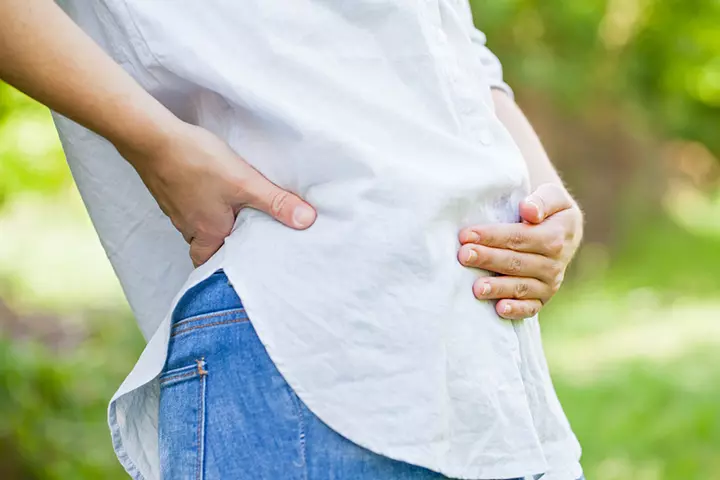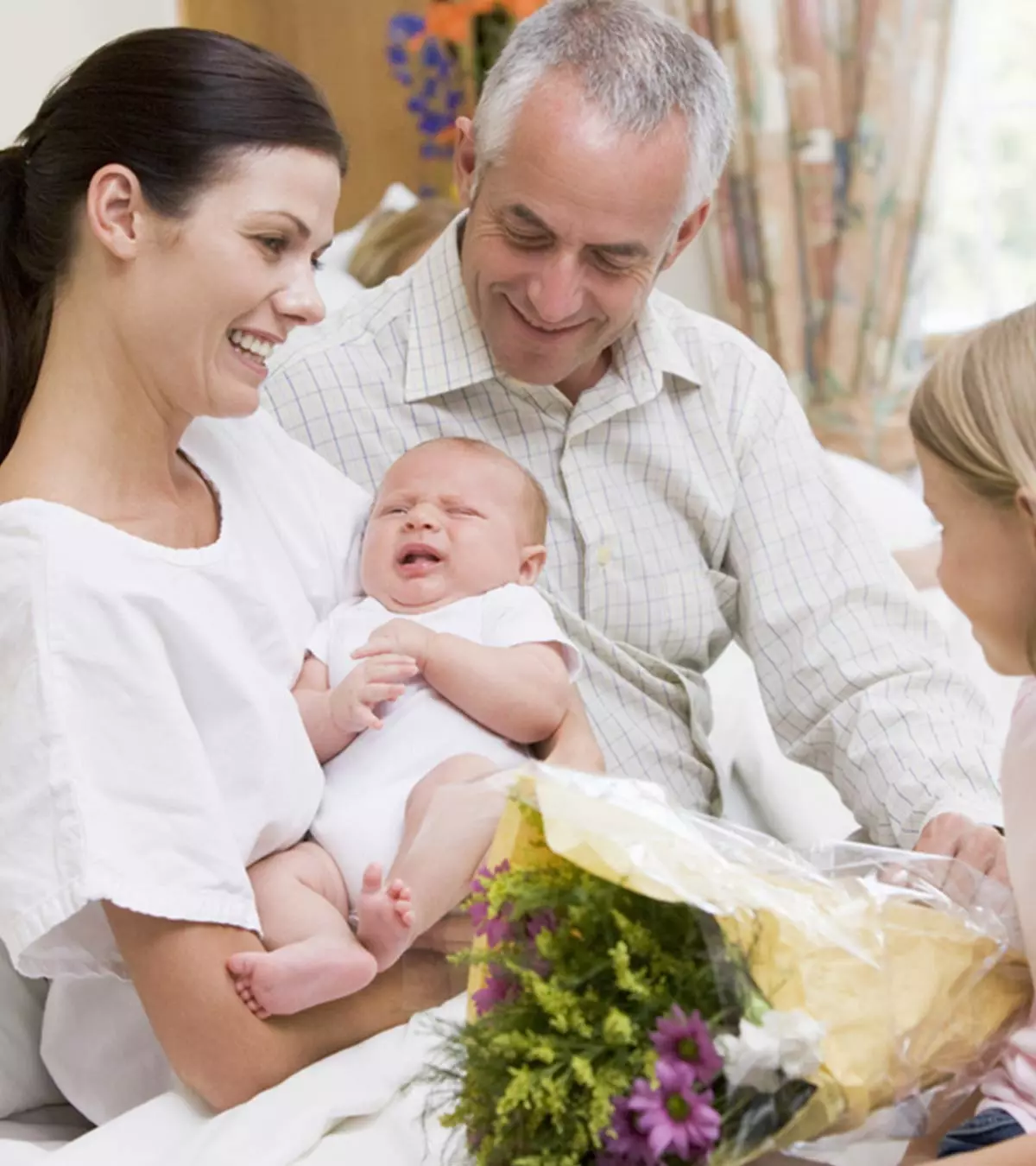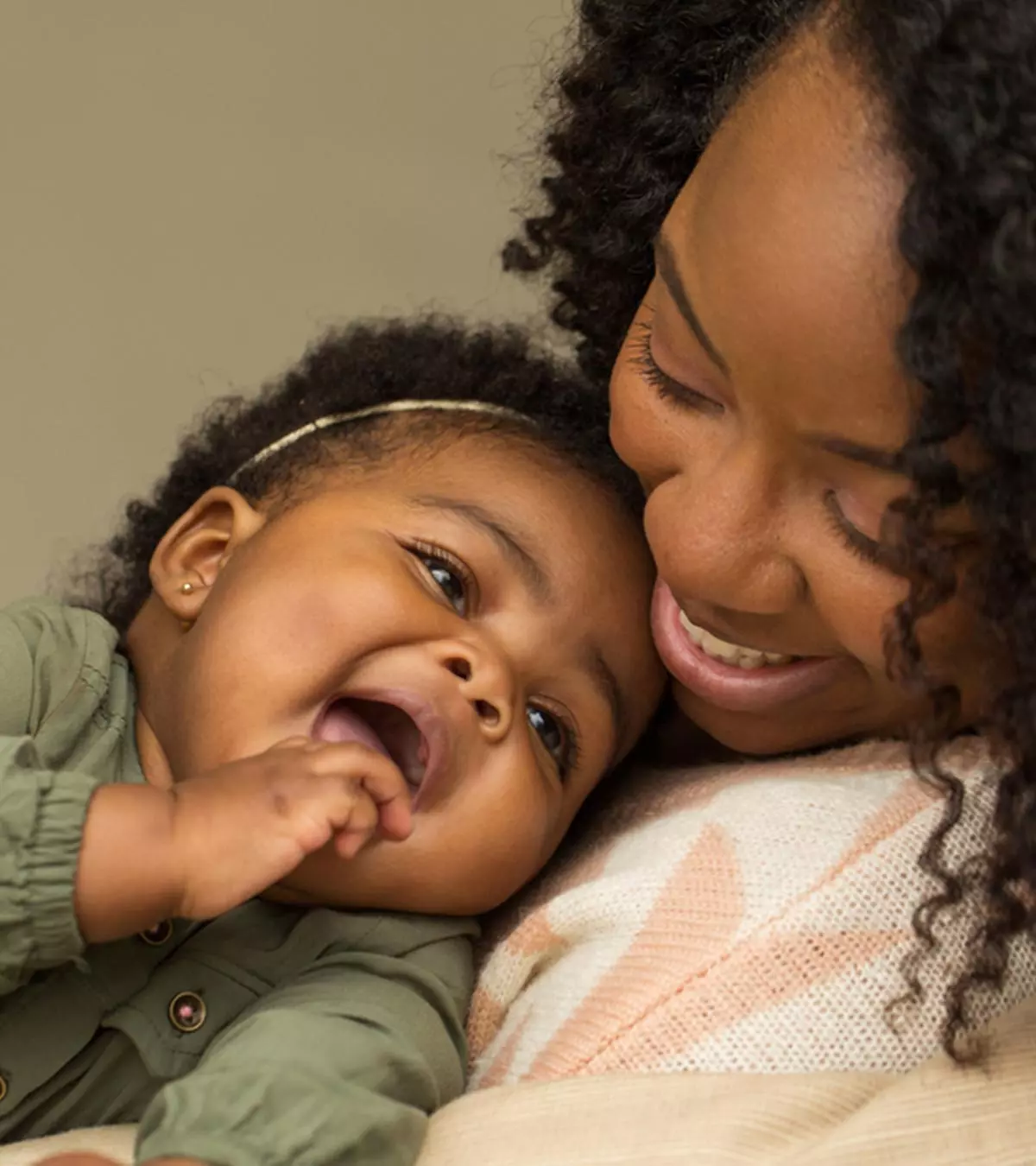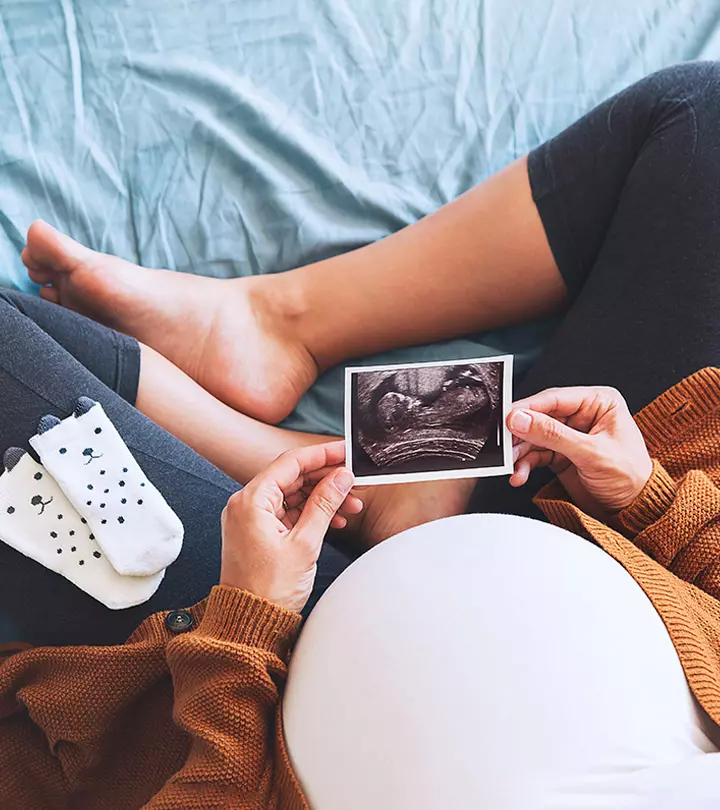
Image: iStock
Beginning your journey into motherhood can be both exciting and challenging. Your body goes through several remarkable changes in the early stages to accommodate a new life in your womb. Even in the early days, you will face many expected and sometimes unexpected symptoms thanks to the various hormonal changes. This calls for a better understanding of what to expect in the coming weeks. It’s important to be aware of the various changes that accompany pregnancy and to know that it’s part of a natural process. A little preparation and a positive headspace will however make this a smooth ride for you.
As your body goes through these physical and emotional changes, you must be eager and anxious about what comes next and how to take the best care for yourself as well as your baby. Here are few things you should expect in the first month of being pregnant:
When Does The First Month Of Pregnancy Start?

Image: Shutterstock
Pregnancy is divided into three stages: the first, second, and third trimester. The first month is naturally included in the first of the three trimesters. This period sees the onset of the early development of the embryo and many accompanying hormonal changes. The full term of the pregnancy is around nine months (1).
Yes, it is not easy to pinpoint the exact time of your conception. But, as per common assumptions, the first day of your last menstruation marks the beginning of your gestational period. Your doctor will order an ultrasound to confirm your pregnancy accurately.
What Happens To Your Body During The First Month Of Pregnancy?

Image: IStock
The biology of the female body prepares for the process of fertilization in regular intervals. After your menstrual cycle commences, the most mature egg is released from the ovary after two weeks. This process is called ovulation. Depending on the length of your menstrual cycle, ovulation will take place earlier or later. On average, the menstrual cycle is 28 days. As the egg is released, it moves down the fallopian tube to reach your uterus. When the egg unites with a sperm, it is termed fertilization. The fertilized egg cells now start to multiply to form an embryo. After 3-4 days of fertilization, this mass of cells floats in the uterus for 2-3 days. Only after this ball attaches itself to the uterus lining, implantation occurs. Implantation will happen 6-12 days after ovulation. At the end of two months, the embryo becomes a fetus (2).
What Are The Hormonal Changes That Occur During Pregnancy?

Image: IStock
The main pregnancy hormones are progesterone and estrogen. Your body will produce and release more estrogen during pregnancy. Estrogen helps the uterus and placenta to form more blood vessels, enabling the exchange of nutrients, and thus support the fetus’s development. The placenta is a temporary organ that ensures the supply of all important nutrients as well as takes care of the respiration and excretion needs of the fetus. Progesterone aids in the physical changes of the uterus to prevent rejection of the embryo, helping in implantation (3). The human chorionic gonadotropin hormone (hCG) is made in the placenta. As the levels of hCG rise at a significant rate in the first month, this hormone is detected early in the urine and blood after conception (4).
What Are The Signs Of Early Pregnancy?

Image: IStock
- Missing your periods is the first sign that pregnancy has occurred for many people.
- You’ll feel nauseous and dizzy. Also called the “morning sickness”, this can be accompanied with or without vomiting (5)
- You’ll feel tired. A constant state of being exhausted is what you should expect. Physical and mental fatigue is a result of your body working overtime (6)
- Lack of sleep is another unpleasant symptom cited during pregnancy. You are likely to feel drowsier than usual due to a rise in progesterone, a hormone made by ovaries (7)
- Your breasts will be tender and swollen. This is a result of hormonal changes in the body (8)
- Frequent urination. You’ll be doing more rounds of the washroom than usual as the kidneys have to process more blood than your body produces at this time. This extra fluid reaches your bladder and causes you to urinate more. Another reason is that the uterus generally situated behind the bladder starts to press on the bladder, so you’ll feel the need to go to the loo (9)
- Cramps and stomach pains are caused because of the uterus stretching, bloating, and constipation. Cramping, in most cases, will ease off after implantation. Due to a sudden rise in blood flow and hormones, these pains will be more pronounced as the pregnancy progresses (10)
Your Responsibilities In The First Month Of Pregnancy

Image: IStock
- Get an appointment with your doctor or gynecologist to confirm your pregnancy. Complete the tests and follow their advice.
- Get enough sleep to relieve fatigue. You’ll be tired throughout the pregnancy and also later. So, get in the habit of peaceful sleep.
- Eat enough to support your nutritional needs. The right diet plan will help you maintain good energy levels.
- Quit smoking or drinking if you haven’t already. These habits have high risks for the mother as well as the baby.
- Start taking your prenatal vitamins like folic acid, calcium, and iron. A good pre and post-conception care routine will ensure you can keep all deficiencies away.
- Choose loose and comfortable clothes. Tight clothing, especially ones that are restrictive near the belly region can cause discomfort which can add to stress and other associated body pains.
- Avoid heavy lifting or strenuous activities as your baby’s safety is crucial in the early month of pregnancy.
- Stay happy. In a few more months, your belly will grow, and you can feel your baby kick. Remember, a happy mom will raise a happy kid!
In the first month of pregnancy, your body and mind will undergo a host of changes. These are the small but rapid steps that your body takes to support the development and nourishment of the embryo. Stay in touch with your doctor and let them know if you notice something unusual or discomforting. What changes did you notice in your first month of pregnancy? Do share with us your experiences of the early months of pregnancy in the comments section below!
References
- Predicting Date Of Birth And Examining The Best Time To Date A Pregnancy
https://pubmed.ncbi.nlm.nih.gov/23932061/ - How to Get Pregnant
https://americanpregnancy.org/getting-pregnant/how-to-get-pregnant/ - Use Of Progestagens During Early Pregnancy
https://www.ncbi.nlm.nih.gov/pmc/articles/PMC3987350/ - Hormones During Pregnancy
https://www.hopkinsmedicine.org/health/conditions-and-diseases/staying-healthy-during-pregnancy/hormones-during-pregnancy - Nausea During Pregnancy
https://americanpregnancy.org/pregnancy-symptoms/nausea-during-pregnancy/ - Fatigue And Work In Pregnancy
https://pubmed.ncbi.nlm.nih.gov/11128412/ - Get a Good Night’s Sleep During Pregnancy
https://www.hopkinsmedicine.org/health/conditions-and-diseases/staying-healthy-during-pregnancy/get-a-good-nights-sleep-during-pregnancy - The Diagnosis And Management Of Breast Problems During Pregnancy And Lactation
https://pubmed.ncbi.nlm.nih.gov/7573738/ - Pregnancy or PMS?
https://americanpregnancy.org/getting-pregnant/am-i-pregnant/pregnancy-symptoms/ - Signs And Symptoms Associated With Early Pregnancy Loss: Findings From A Population-based Preconception Cohort
https://pubmed.ncbi.nlm.nih.gov/26936888/
Community Experiences
Join the conversation and become a part of our nurturing community! Share your stories, experiences, and insights to connect with fellow parents.












